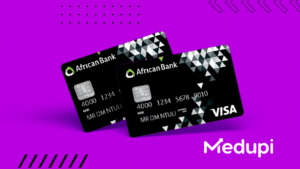ADVERTISEMENT
When looking for emergency cash loans, it is important to know the common requirements most lenders will ask for.
Typically, you will need to provide proof of income, which shows that you can repay the loan.
ADVERTISEMENT
This could be in the form of pay stubs, bank statements, or tax returns. Having these documents ready can speed up the application process.
Additionally, lenders often require you to have a bank account. This allows them to deposit the cash directly into your account if you are approved.
ADVERTISEMENT
It also makes it easier for them to deduct the payments automatically, ensuring that your loan is paid back on time.
Some lenders may also check your credit history as part of the application process. However, many offer loans even to those with less-than-perfect credit.
If you are concerned about your credit score, look for lenders who specialize in working with individuals who have bad credit.
This way, you’ll have a better chance of getting approved for the funds you need.
Emergency cash loans are essential financial tools designed to assist individuals during unexpected monetary crises.
Whether it’s an emergency medical bill, urgent home repair, or car trouble, having quick access to cash can provide peace of mind.
What are Emergency Cash Loans?
Emergency cash loans are short-term loans designed to provide quick financial help when you need it most.
These loans are typically for small amounts of money, which can be approved in just a few hours or even minutes.
They are ideal for unexpected expenses, such as medical bills or urgent home repairs.
One of the main attractions of emergency cash loans is their fast processing time.
Unlike traditional loans that can take days or weeks to approve, emergency loans can be applied for online and accessed almost immediately.
This makes them a popular choice for people in a tight spot who need cash quickly.
However, it is important to remember that while emergency cash loans can provide quick relief, they often come with higher interest rates.
Borrowers should carefully consider their ability to repay the loan on time to avoid falling into a cycle of debt.
Eligibility Criteria for Emergency Cash Loans
Eligibility criteria for emergency cash loans vary by lender, but most require that you are at least 18 years old.
You will also need to be a South African citizen or a permanent resident.
These basic requirements ensure that lenders can verify your identity and ensure you have the legal capacity to enter a loan agreement.
Additionally, many lenders ask for proof of income. This could be a pay stub or bank statement that shows you have a steady source of income.
Your income helps lenders see if you can repay the loan on time. Some lenders may also check your credit history, but others may be more flexible.
Lastly, you must have an active bank account. This is where the lender will deposit the funds if you are approved for the loan. Having a bank account also makes it easier to set up repayments. Always check with each lender for their specific requirements before applying.
How to Apply for Emergency Cash Loans
To apply for emergency cash loans, first, you need to find a lender that meets your needs. Start by researching lenders online.
Look for reviews and check their terms to ensure they are trustworthy. Choose a lender that offers quick processing times, as this is crucial during an emergency.
Once you’ve selected a lender, go to their website and fill out the online application form. You will need to provide some personal information, such as your name, address, and income details. Make sure to have documents ready, like your ID and proof of income, as these may be required to complete the application.
After submitting your application, the lender will review it. If approved, you will receive the funds directly in your bank account.
The entire process is usually quick, so you can get the help you need right away. Always read the loan agreement carefully before accepting any offers.
Pros and Cons of Emergency Cash Loans

Emergency cash loans offer several advantages, making them a desirable option for many people.
The biggest pro is the speed at which you can get the funds.
These loans are designed for quick approvals, allowing you to tackle urgent expenses almost immediately.
Additionally, the application process is usually simple and can often be done online from the comfort of your home.
However, there are also downsides to consider. One major con is the high interest rates that come with emergency cash loans.
These rates can be significantly higher than traditional loans, making it important to understand the total cost before borrowing.
If you’re not careful, you could end up in a difficult financial situation.
Another drawback is that emergency loans can encourage a cycle of borrowing.
If you rely on these loans too often, it may be harder to manage your budget and debts.
It’s essential to weigh these pros and cons carefully before deciding whether to take out an emergency cash loan.
Tips for Choosing the Right Lender
When looking for a lender for your emergency cash loans, it’s important to start by checking their reputation.
Read reviews from other borrowers to see their experiences.
A lender with positive feedback and good customer service is more likely to treat you fairly and help you through the loan process.
Another tip is to compare interest rates and loan terms from different lenders.
Some may offer lower rates or more flexible repayment options. Make sure to understand the total cost of the loan, including any fees. This will help you find a lender that offers the best deal for your financial situation.
Lastly, check if the lender is registered and licensed. This ensures that they follow legal guidelines and regulations.
A legitimate lender will provide clear information about their services and answer any questions you may have.
By choosing wisely, you can make the borrowing process smoother and more reliable.
Understanding the Terms and Conditions
Understanding the terms and conditions of your emergency cash loan is essential before you sign any agreement.
This document outlines the rules and expectations between you and the lender.
It includes details such as interest rates, repayment schedules, and any fees that may apply. Reading this carefully can help you avoid surprises later on.
One important aspect to look for in the terms is the interest rate. This is the cost of borrowing money and can vary widely between lenders.
Make sure you note whether the rate is fixed or variable, as this can impact how much you will pay over time.
Additionally, watch for any fees related to late payments or early repayment.
Finally, the terms should clarify your repayment obligations. Know when your payments are due and how long you will be paying back the loan.
Having a clear understanding of your responsibilities can help you manage your finances better and ensure that you do not fall behind.
Always ask questions if something is unclear to you.
Repayment Options for Emergency Cash Loans
When taking out emergency cash loans, it’s important to understand the repayment options available.
Most lenders offer various methods to suit your needs. Common options include monthly payments or weekly payments, depending on how you receive your income.
Choosing a repayment schedule that fits your financial situation can help you manage your loans better.
Another option you might encounter is the ability to make partial payments or pay extra towards the principal.
This feature allows you to reduce the overall interest paid over time since interest is calculated on the remaining loan amount.
If you have the extra funds, consider taking advantage of this option to pay off your loan quicker.
Lastly, be aware of any penalties for late payments or missed payments.
Some lenders may offer a grace period, but others might charge fees that can add to your debt.
Always ask your lender about these conditions before signing the loan agreement to avoid unexpected costs down the road.
Emergency Cash Loans
What should I consider when applying for emergency cash loans?
Evaluate your financial needs, determine how much money you require, and what you plan to use it for.
How can I assess my repayment capacity for a loan?
Take a close look at your monthly budget and expenses to understand how much you can afford to pay back each month.
Why is it important to compare different lenders?
Different lenders have various terms, interest rates, and benefits; researching options helps find a loan that fits your needs.





